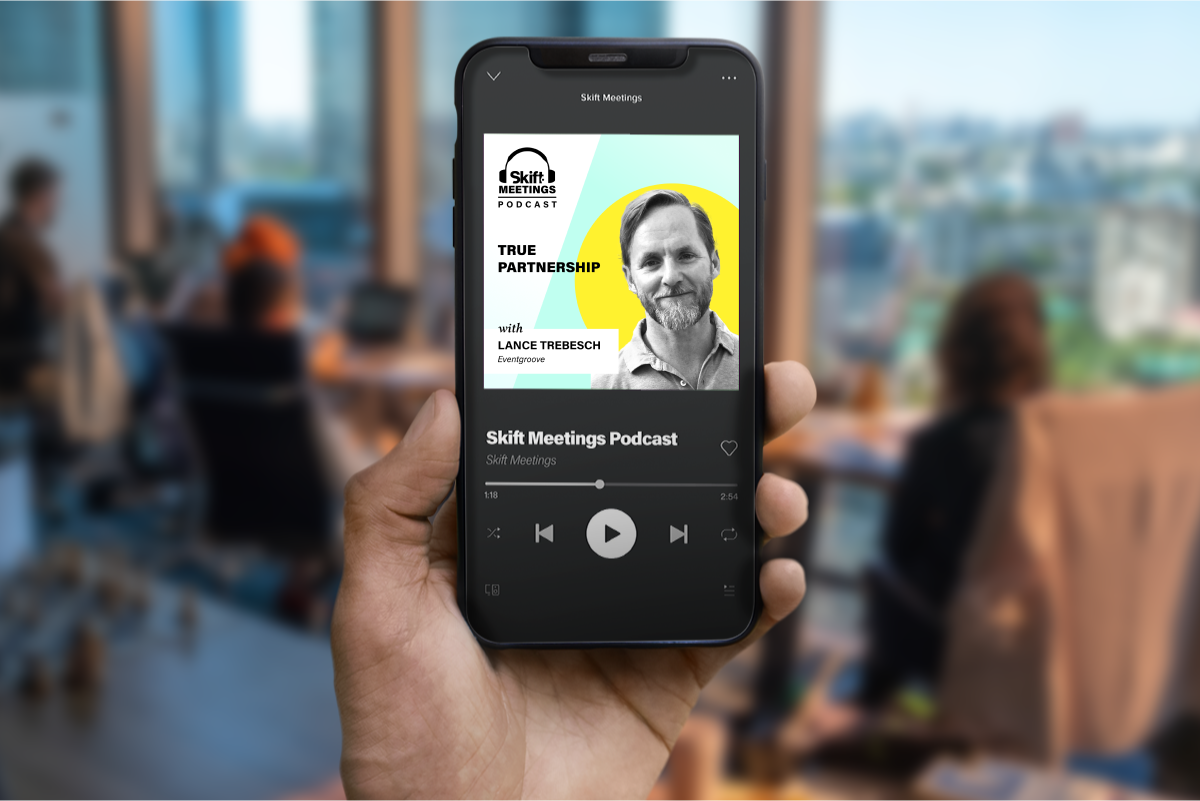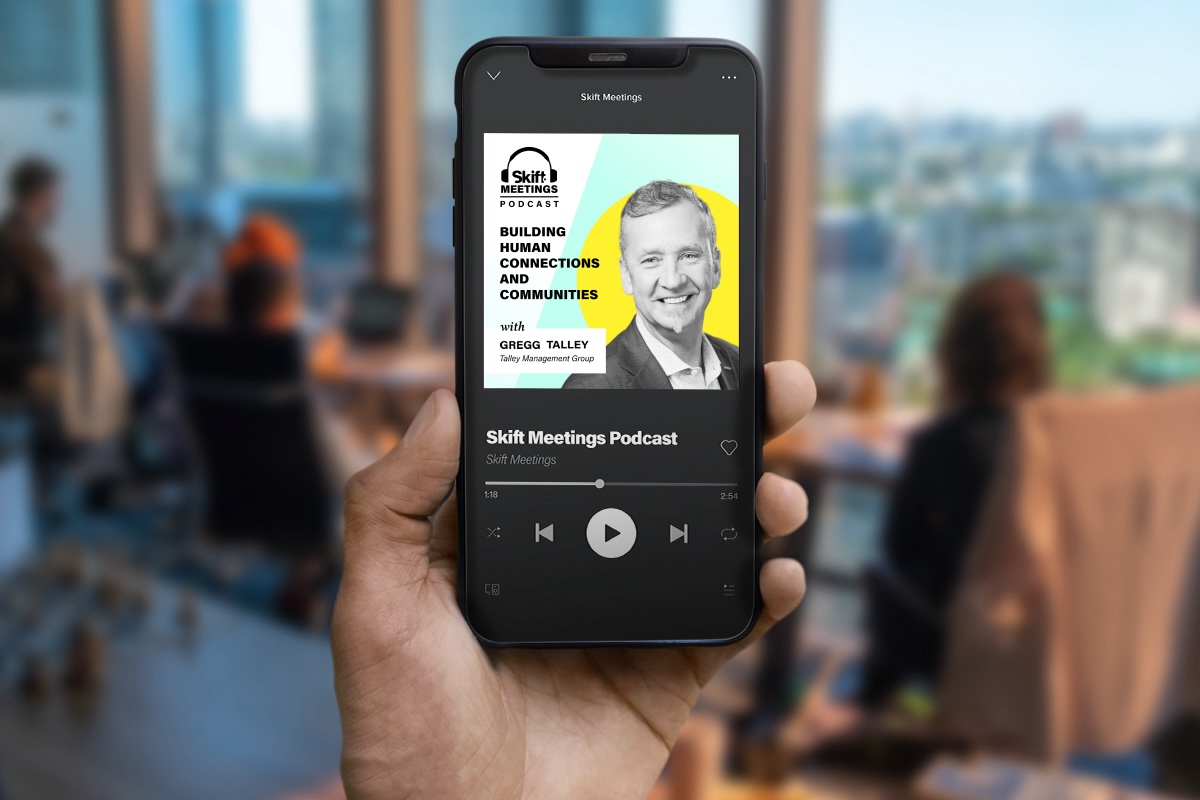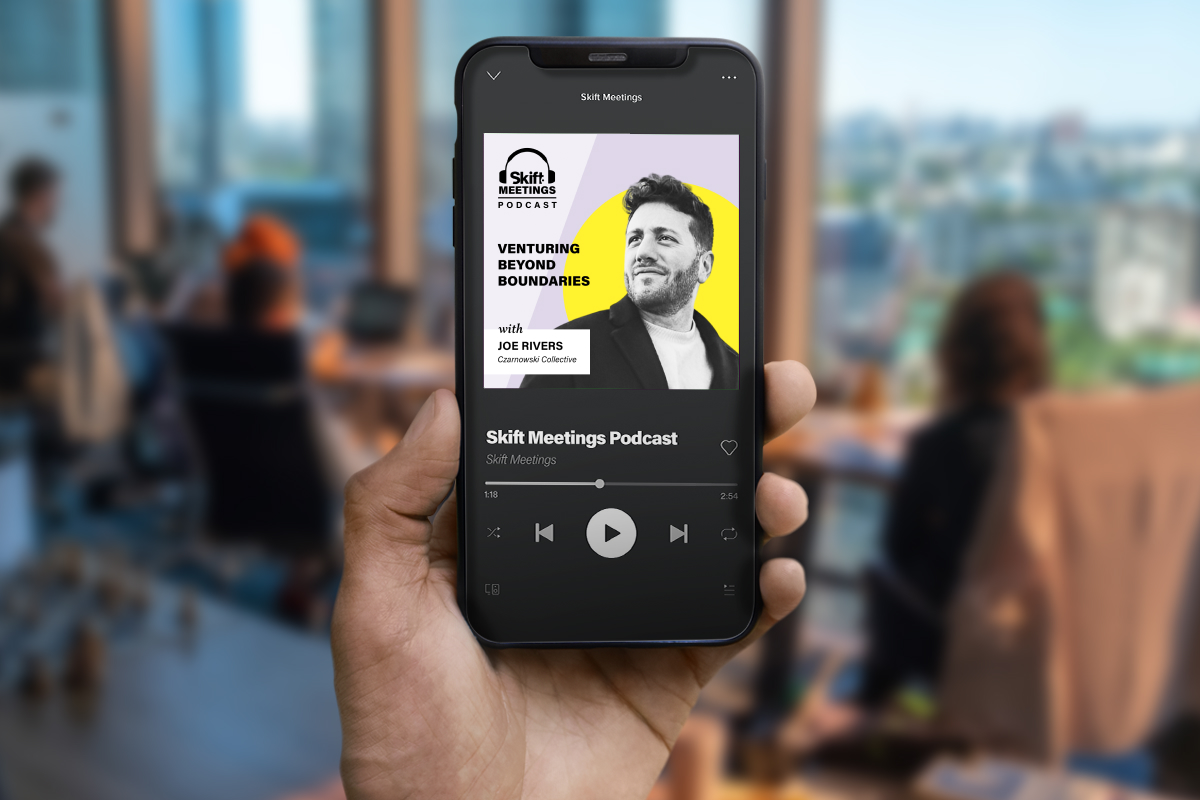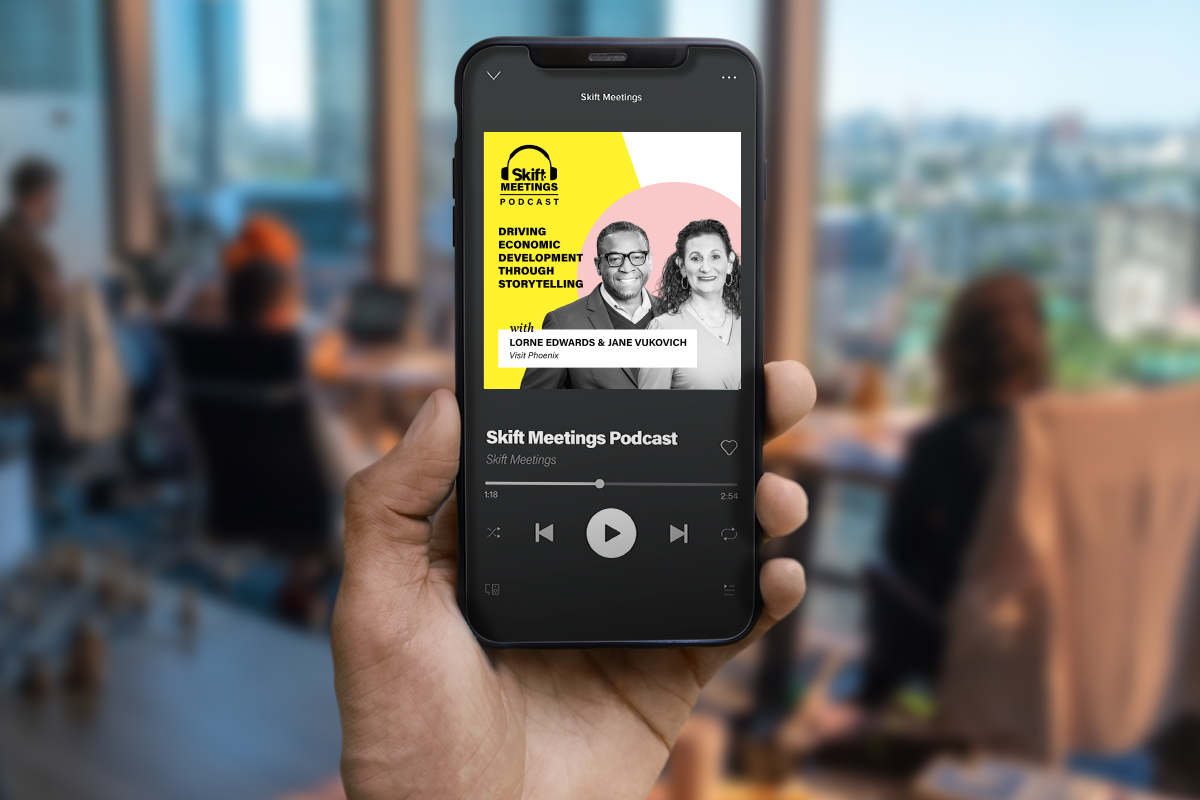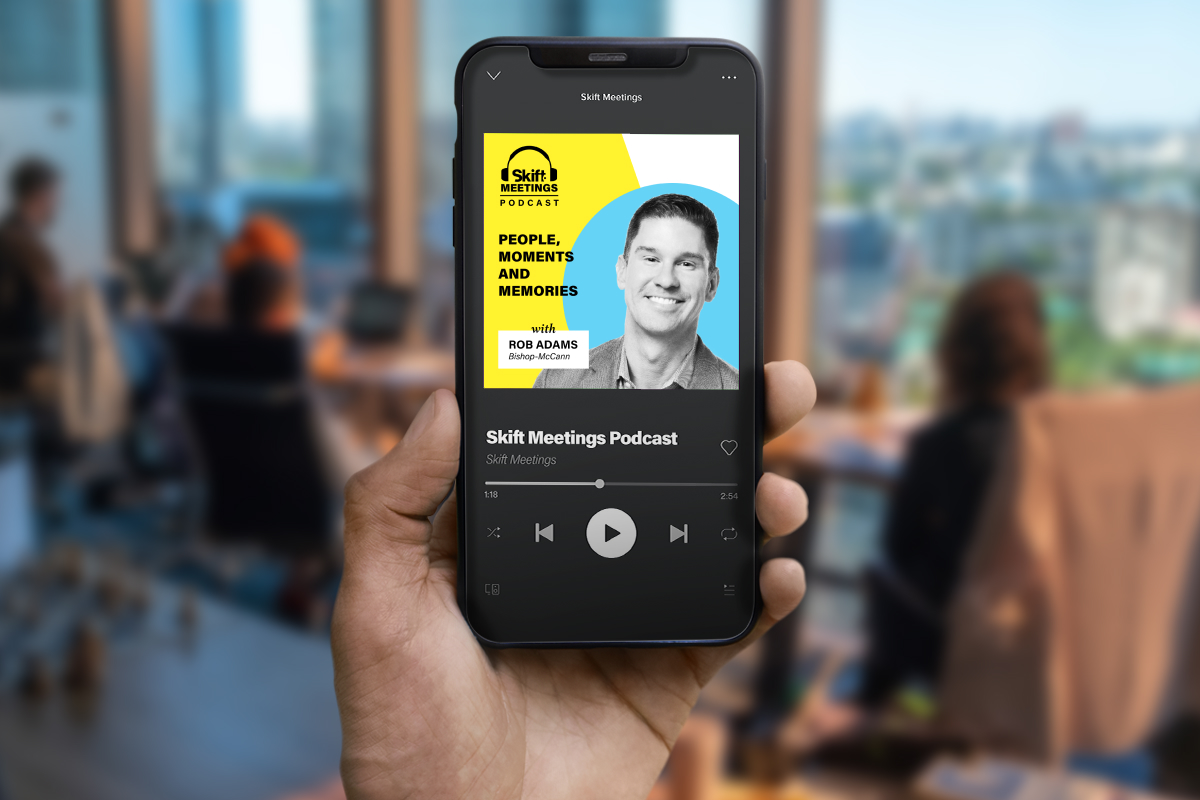Skift Take
Eventgroove CEO Lance Trebesch believes in building great client relations through clear and fair pricing. He sees future events as sustainable, tech-augmented gatherings.
CEO Lance Trebesch said Eventgroove is a vibrant 26-year-old ‘startup’ founded by Mike Yinger, a top IBM global software architect, in 1997. The initial idea — born helping a friend print tickets for a local community playhouse — transformed into a life-changing entrepreneurial opportunity. Trebesch now runs the bootstrapped company with an ethos of true partnership, reflected in its pricing and the support it offers customers.
Subscribe to the Skift Meetings Podcast: Apple Podcasts | Spotify | Overcast | Pocket Casts | Google Podcasts | Amazon | RSS
A simple desktop downloadable software evolved into a multifaceted platform that manages event products, designs, and e-commerce storefronts. The platform, referred to by Trebesch as a “Shopify plus Etsy” for events, provides resources for mainly nonprofit clients. One of Eventgroove’s primary focuses is supporting fundraisers. It helps its clients with auctions, raffles, sweepstakes, crowdfunding, donation pages, and peer-to-peer fundraising.
Eventgroove’s Unique Approach to Client Relations
Eventgroove’s “true partnership” model of customer relations is to build trust. They only earn money when their customers do. There are no set-up fees, subscription fees, or advanced feature pricing. All customers have free access to the platform, plus free CRM integration. Customers can opt for a contract but can terminate it at any time. Their private label model allows customers to brand their event site and run any number of events at no extra charge. Retention is high and customers benefit from the controlled event programs, emotional investment, and no negotiation. “We only make money when our customers are making money,” Trebesch said.
What Is Needed to Make Events Work
Trebesch identified two critical factors in creating successful events, splitting them into foundational and creative layers. The foundational layer includes four components: goals, people, technology, and processes. The creative layer is centered around crafting unique and memorable experiences. With a shift to virtual events during the Covid pandemic, and now the shift back. Trebesch predicts that we will continue to see a “fundamental return to in-person events,” but with more tech integration.
The Challenges that Lie Ahead
Trebesch identified the slowing economy and the increasing importance of sustainability as key challenges in the events industry. He suggested that event budgets would come under increased scrutiny in a slowing economy and underscored that sustainability efforts would be indispensable in the future. Trebesch follows technology author Tim O’Reilly’s guiding principle: create more value than you capture for long-term customers.
Sustainability is a big focus for Trebesch and Eventgroove in the spirit of “true partnership”. He encourages all event vendors to have sustainability sections in their contracts. Since 2007, Eventgroove has donated 42% of our net profits to climate and conservation, ensuring all shipments are carbon neutral, donating revenue to Stripe’s carbon removal program, hosting with renewable energy, and producing with 100% wind power. “I’m really proud of what we’re doing there because there is no event platform that has done more around sustainability, climate, and conservation than us,” said Trebesch.
Looking to the Future
While technology will continue to augment and enhance events, Trebesch reaffirmed the irreplaceable value of in-person experiences. “Fundamentally, we’re a tribal species, and it’s going to be those moments of magic and interaction […]that’s kind of who we are as a social species. And technology can perhaps augment that, perhaps enhance that, but I really think events at their core will be what events are today,” he said.
Trebesch encouraged harnessing the appeal of travel and in-person interactions to attract young people to the events industry. He also advocated for building expertise in one function before expanding into others. “It gives you a lot of different optionality in your career.” he advised.
